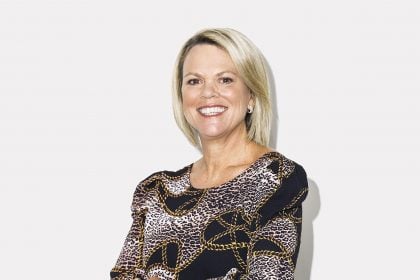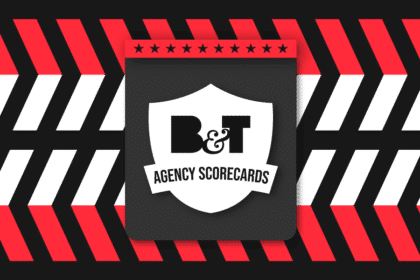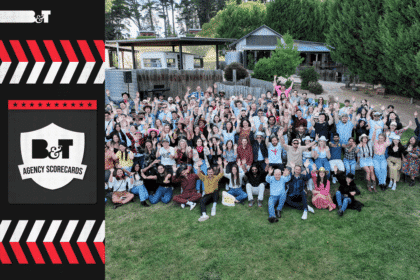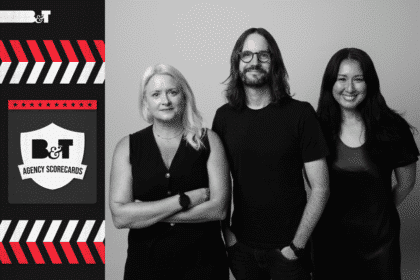Media has a talent problem. The Media Federation of Australia Census data showed that the average age of someone in the sector was 32.1 years old (down a couple of months from previous census information) and that staff only spend two-and-a-half years on average at their agencies before jumping ship.
Lead image L-R: Pawena Kaniah, strategist; Luke Amasi, client director; Marcelle Gomez, managing director NSW, iProspect.
Industry churn stands at almost a third and a whopping 11 per cent of staff are graduates. Around 12 per cent are so-called “Boomerangs” who have returned to media agencies after working in another sector.
Efforts to solve these problems have taken many forms. Dentsu’s iProspect media shop thinks that it has landed on a solution with its Level Up Committee (LUC). Born out of iProspect’s inaugural employee value proposition last year — “Where the ambitious accelerate the possible” — the committee consists of senior leaders and staff working to bridge the gap and offer growth opportunities for staff.
“There are five team members who sit on the committee and they work with our executive leadership team nationally,” Marcelle Gomez, managing director NSW at iProspect explained to B&T.
“They’re part of helping to drive our business strategy and the initiatives that sit within that business strategy. They challenged it, built on it, added to it and they’ve been acting as a voice for the people”.
There are five members of the committee across iProspect’s offices in Sydney, Melbourne and Brisbane. It is self-nominated with potential candidates putting their names forward and tracking different actions to gain nomination points. These include nominating colleagues for “Shining Star” awards — iProspect’s employee of the month gong — entering industry awards, completing industry certifications, rolling out environmental or social initiatives and more.
Bringing the young’uns into the fold has a number of benefits — for the business, rank-and-file and senior leaders alike.
Pawena Kaniah, a strategist at iProspect and member of the inaugural LUC, explained that it ensures “generational inclusivity”.
“It might seem like a radical idea that seniors are learning from juniors, but it’s something that we all aspire towards. There’s always space for everyone at any point in their career to keep learning”.
Luke Amasi, a client director at iProspect and fellow LUC member, added that he felt that the committee let him “put [his] fingerprints on the business”.
“You get more buy-in so there’s a benefit for the exec team because they have super-motivated staff. From my perspective, I feel more passionate about work, more energised to be here because I’m taking more ownership”.
So what tangible changes have emanated from within the LUC’s walls? For Gomez, the biggest change was developing a culture of “psychological safety”.
“People can share their feelings and points of view. But these guys in particular [the committee members] are natural born leaders and, when we sit in those forums, there is no sense of hierarchy or because of title or tenure, anyone’s opinion is more valuable than others,” she explained.
The committee has also ushered in changes to iProspect staff’s Personal Development Plans.
“Every agency has one but it was the will to bring the team in and make that process even more accessible, easier and evolving with the industry,” she said.
“There could be new industry events, new certifications, awards and whatnot. By putting that all into a single repository made it feel like everyone has ownership over their own career path”.
The committee team has also pushed hard for a greater understanding of the commercial side of agencies — something more commonly locked away for the bean counters and executives.
“The guys talked about having a greater informational understanding of the mechanics of the business, how we make money and how they can better understand and contribute to that. We opened up the process to the team of how we set budgets, what the business planning looks like from a commercial perspective and educating them on how P&L works and the levers we have to play with,” said Gomez.
Amasi added that it gave the team “clarity on the common goal” and that iProspect had rolled out commercial acumen training following the discussions within the committee.
“It gives you an understanding and puts more value on the work you do because a lot of the stuff might not feel consequential. But also it lets you understand the value of having an account — that’s pretty common within agencies — but it lets you discuss the long-term and financial impacts”.
For Kaniah, this more detailed level of understanding conferred benefits to the people she manages, as well.
“It helped me bring that know-how and insight to empower my team to feel a greater sense of belonging because they had a better understanding of how their work fits in the larger picture. It lets you see that sparkle in their eye as they think ‘Oh, that’s why'”.
But sadly for Kaniah and Amasi, their time on the LUC is coming to an end. A new cohort of members will join next year. Fortunately, there are some important lessons that this year’s team has learnt.
Amasi said that the team started having one-on-one sessions with members of the executive leadership team too late in the process — “I would encourage them to get onto that earlier,” he added.
Kaniah, meanwhile said that, despite the “amazing amount of work” that the iProspect has been involved with, it was “guilty of being mysterious and kept secret”.
“I would love for the next cohort to bring it out to market and talk about the great things that we’re doing,” she said.
The gauntlet has been laid down.








